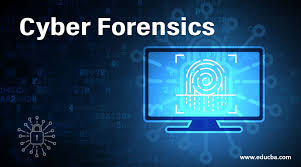About this course
1. Introduction to Cybercrime Investigation and Forensics
2. Legal and Ethical Issues in Cybercrime Investigation
3. Computer Crime Scene Investigation
4. Digital Evidence Collection and Preservation
5. Network Forensics and Analysis
6. Malware Analysis and Reverse Engineering
7. Cloud Forensics and Mobile Device Forensics
8. Steganography and Cryptography in Cybercrime
9. Cybercrime Investigation Tools and Techniques
10. Cybercrime Case Studies and Scenario Analysis
11. Cybercrime Investigation Report Writing and Presentation
12. Cybercrime Investigation in Social Media
13. Cybercrime Investigation in E-commerce and Banking
14. Cybercrime Investigation in Intellectual Property Theft
15. Cybercrime Investigation in Terrorism and National Security
16. Future Trends in Cybercrime Investigation and Forensics
17. Practical lab sessions for hands-on experience in cybercrime investigation and forensics tools and techniques.
who should attend the course and its benefits
This course is designed for professionals working in the field of law enforcement, digital forensics, cyber security, and IT security, including:
· Police officers and detectives
· Digital forensics examiners
· Cybercrime investigators
· IT security professionals
· Network administrators
· Legal professionals
· Information technology professionals
The course will provide attendees with a comprehensive understanding of the latest tools and techniques used in cybercrime investigation and digital forensics. Participants will gain hands-on experience in using industry-standard tools and techniques to collect, preserve and analyze digital evidence. Additionally, the course will provide attendees with the knowledge and skills necessary to effectively investigate and prosecute cybercrime cases and understand legal and ethical issues related to cybercrime investigations.
Some benefits of attending this course include:
· Understanding the legal and ethical issues related to cybercrime investigations
· Knowledge of computer crime scene investigation and digital evidence collection and preservation
· Skills in network forensics, malware analysis, and reverse engineering
· Understanding of cloud forensics, mobile device forensics, steganography, and cryptography in cybercrime
· Hands-on experience with industry-standard tools and techniques for cybercrime investigation
· Knowledge of current cybercrime case studies, scenario analysis, and future trends in the field.
Comments (0)



.png)



